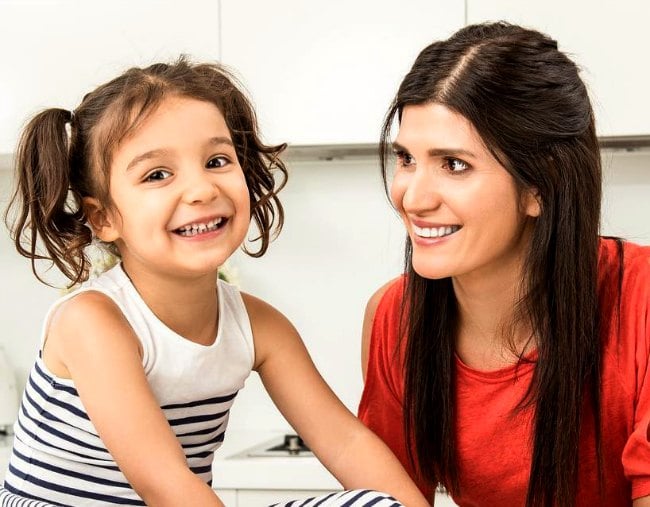
Children learn attitudes to food and their bodies from their parents and caregivers every day, so it goes without saying that passing on a fear of gaining weight can negatively impact a child’s body image and their relationship with food.
It’s for this reason that I always encourage families that I meet in my workshops to learn how to speak positively to their little ones about food, as well as body image. I am so passionate about this topic that it is also something that I go into detail around in my book “Wholesome Child: A Complete Nutrition Guide and Cookbook” (along with a clinical psychologist’s perspective on the matter).
The most important thing I learned when I helped develop MEND, a programme to empower overweight and obese children and their parents, is that improving a family’s health takes more than simply swapping out junk food for healthier options and enrolling in extra physical activities. It also involves changing ingrained unhealthy behaviours and attitudes towards food for healthier ones.
